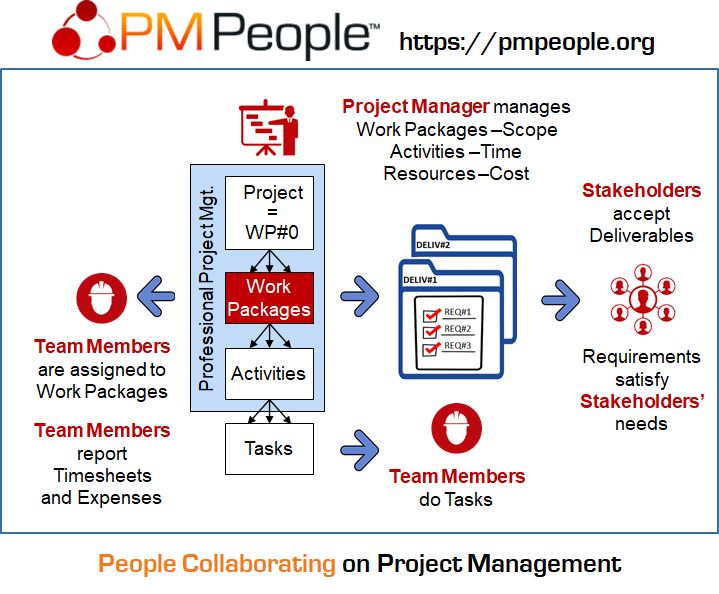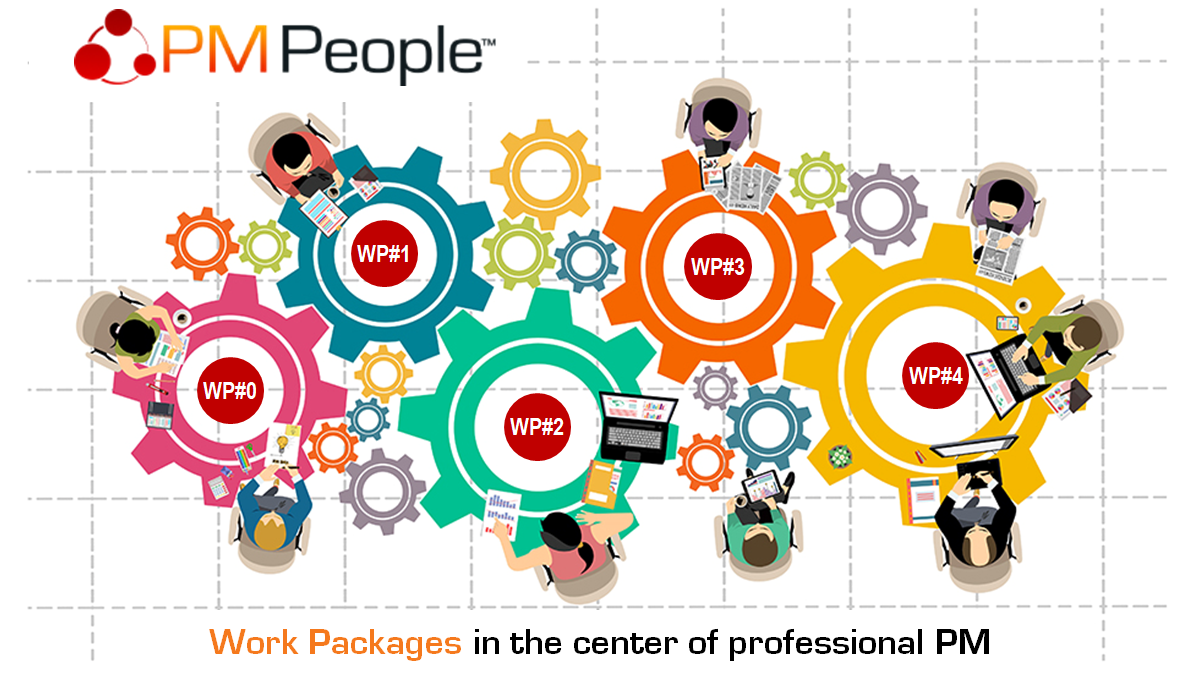Managing the project scope consists on defining what we should do, and controlling we don’t do what we are not supposed to:
- Decomposition is the main technique to plan the project scope. You get to know properly what to do when you divide the project into manageable elements named work packages.
- Work packages define what to do, at the operational level. If some specific work is not included in any work package, then you can say this work is “out of the project scope”, so the project team are not supposed to do it.
- 100% rule: The sum of the work at the work package level should equal the total work of the project as a whole, no less, no more.
PMI® defines the term work package as “the work defined at the lowest level of the work breakdown structure for which cost and duration are estimated and managed”.
Work Packages are in the center of professional project management:

- Project managers can decompose work packages into activities to control start and finish dates. Resources can be assigned to activities to control cost.
- Work packages can include one or many resource assignations: Team members working for the project should know wich is the work package they are working on. Time sheets and expenses should be reported at the level of work package.
- Work packages can include one or many tasks. When team members are working on tasks, they should know which part of the project they are working on. This is simple if they are aware of the work package including the task.
- Requirements and deliverables can be traced to the project if they are included into one work package. Requirements and deliverables related to the project as a whole can be included into work package #0.
- When stakeholders accept deliverables or check their requirements are met, they should know which part of the project they are. This is simple if they are aware of the work package including the deliverable or the requirement.
PMPeople is the tool for the project economy. It is aimed to unify professional project management by these differential points:
- Designed by and for professional project managers, following professional project management standards.
- Online productivity –less meetings, less documents, less workflows– through distributed collaboration among 12 specialized roles: Organization Owner, 6 roles on demand management and 5 roles on supply management.
- Freemium product –unlimited time, unlimited users, only managers have to pay– usable via web and mobile application.
Start using PMPeople for free, for unlimited time and for any number of users. In premium organizations, only managers have to pay. Several roles –stakeholders, team members, sponsors and resource managers– are always free. You can increase or decrease your premium seats according to the organization actual needs. Premium organizations have access to our interactive support through Slack. Our servers are located in EU. This software can also be hosted on customer premises.
Jose Barato
Related posts
Categories
- Business (16)
- Demand Management Roles (14)
- Frequently Asked Questions (7)
- Guide (26)
- People (23)
- Assignments (2)
- Feedback (2)
- Project Team (3)
- Tracking Time And Expenses (2)
- Process (9)
- Closing (2)
- Executing And Controlling (2)
- Planning (1)
- Project Management (67)
- Management Frameworks (18)
- Organization Owner (OO) (3)
- Project Economy (54)
- Tools (19)
- Supply Management Roles (5)
- Training (6)
- Uncategorized (1)





